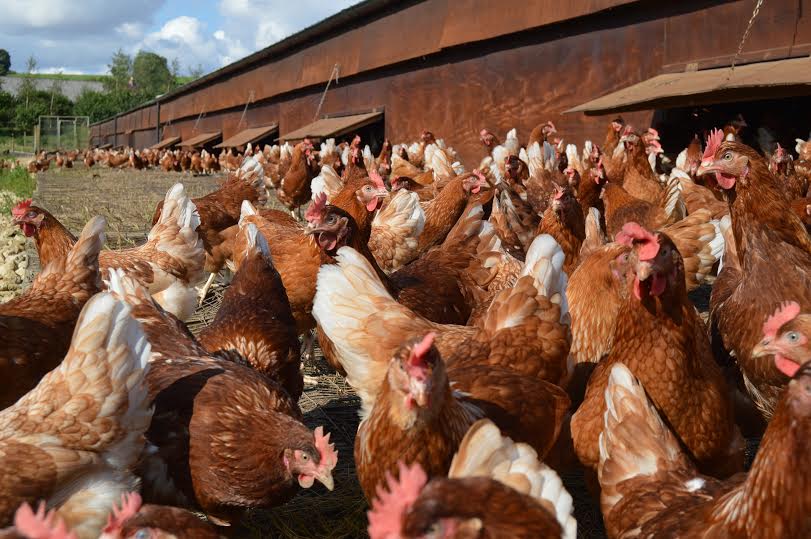
The National Farmers Union (NFU) has begun lobbying the EU Commission for a solution to the marketing of free range eggs if there is another outbreak of Avian Influenza later this year.
In presenting their case, the NFU argued that free range poultry farmers have no choice but to house their birds – they do it to comply with veterinary advice to protect their birds from the risk of contracting AI.
The NFU says, as a consequence, they should not suffer a loss of free range status.
Under European Union rules, free range birds can only be housed for a maximum of 12 weeks before their eggs are downgraded to barn.
The union is seeking to lobby the EU Commission for an extension to the 12 week derogation, which is seen as the most straightforward and fairest way of dealing with the situation.
An alternative action, if the Commission finds the former unacceptable, would be a ensure a veranda is constructed on the side of the existing layer shed to give the birds access outside of the layer shed, at the same time preventing contact with wild birds.
Over the coming weeks the NFU is seeking to build an alliance with other interested parties at a European level.
UK bird flu cases
All poultry keepers - whether they keep a commercial flock or a few chickens in their back garden - have been urged by the Government to practise strict disease prevention measures, following Defra’s guidance to take steps to reduce the risk of infection via the environment.
The UK has seen its fair share of bird flu cases throughout winter. There has been a case on a Suffolk duck farm on the 3 March, on a chicken farm in Northumberland on 24 February, in a pheasant farm in Suffolk on 13 February, Lancashire on 30 January, in a turkey farm in Boston, Lincolnshire on 26 January, in a flock of farmed pheasants at a premises in Preston, Lancashire on 24 January, in a backyard flock in North Yorkshire on 6 January, in Carmarthenshire, Wales, on 3 January, at a turkey farm in Lincolnshire on 16 December and in a number of wild birds across England, Wales and Scotland.
